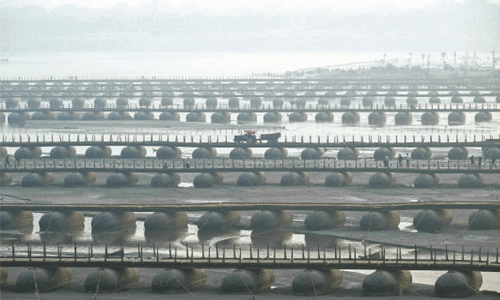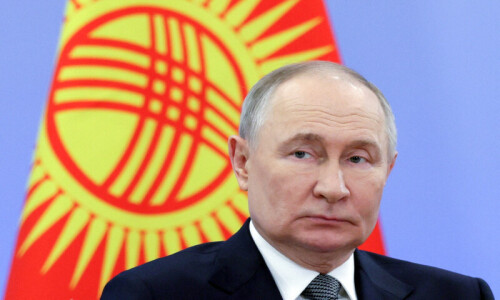THE government has presented a harsh budget and must now perform the high-wire act of keeping its balance while adhering to its targets.
The revenue target is a significant challenge; there is minimal room for slipping up, in view of the expenditure cuts already undertaken and the IMF programme.
If the aggressive tax plan that the budget is built around does not yield the revenue increases they are counting on, the rulers will have no option but to raise taxes on fuels and power, or other quick-yielding heads, since they have already given a commitment to not rely on printing currency via State Bank borrowing.
This would have been the only other avenue to plug potential shortfalls in collection.
With inflation already projected to be in the range of 11pc and 13pc on average all next year according to the budget documents, this could further aggravate matters for the citizenry.
In other words, the budget is ambitious and risky, and with the real GDP growth rate projected to fall further to 2.4pc by next year, things could turn even more dismal as the fiscal year unfolds.
At a time of rising prices and falling job opportunities, the government has made a decision to rely extensively on income tax increases in order to meet its ambitious target of Rs568bn in fresh revenues (aside from the nearly Rs1tr it will be raising from existing measures).
The withdrawal of sales tax exemptions enjoyed by industry for many years is likely to generate more noise in the days to come, but what the government will actually have to answer for is the increased burden of income taxes in every household where incomes are declared and within the tax net.
The budget may help reduce the imbalances in the economy in a way to put a smile on the face of the IMF, but the people of Pakistan have very little to cheer about.
Even the schemes touted in the budget speech of the youthful junior minister for revenue, Hammad Azhar, pale into insignificance next to the gruelling taxation measures and the crushing burden of inflation and unemployment.
The government made a conscious choice to front-load its adjustment, in the parlance of the IMF, and undertake the bulk of its revenue increases and expenditure cuts in the first year.
This is contrary to the direction in which former finance minister Asad Umar seemed to be moving.
His preference was to stretch the adjustment out over a longer period of time in order to mitigate its adverse impact on the people.
Having made the choice to let Pakistanis feel the pain first, the government has asked they make a large sacrifice for the sake of the macroeconomic health of the state.
Now it must wait for their answer as the budget measures are implemented.
Published in Dawn, June 13th, 2019











































